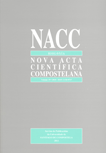Study on the bioremediation impact on intertidal communities affected by the Prestige oil spill at Sorrizo beach (Galicia)
Contido principal do artigo
Resumo
In November 2002 the sinking of the oil tanker Prestige caused one of the worst oil spills off the European coastline. The Marine Biology Station of A Graña carried out a study aimed at assessing the effect of certain bioremediating products used to remove oil from the coast as well as other cleaning techniques used (e.g. hydrocleaning) both on the flora and the fauna. This study was carried out during a year (2003-2004) at Sorrizo inlet (A Coruña, Galicia, NW Iberian Peninsula). This paper sets out the results obtained in the study of both the impact on the fauna and flora caused by bioremediating products and cleaning techniques used at the inlet and the impact caused by the Prestige fuel itself. The use of bioremediation hardly influenced the flora and fauna at Sorrizo beach. In general, a temporary increase of fauna was observed in all sampling areas as shown in the number of species and total abundance. Besides, certain similarities between samples of September 2003 and 2004 were observed both in abundance and specific richness.
Palabras chave
Detalles do artigo
Artigos máis lidos do mesmo autor/a(s)
- Marcos Pérez Señarís, Oscar García Álvarez, Victoriano Urgorri Carrasco, Dúas novas citas de Prochaetoderma Thiele, 1902 (Mollusca, Caudofoveata, Prochaetodermatidae) nos fondos batiais e abisais de Galicia, NW da Península Ibérica , Nova Acta Científica Compostelana: Vol 24 (2017)
- Jesús Fernández-Gutiérrez, Victoriano Urgorri, María Candás, Guillermo Díaz-Agras, Anatomical study of "Onchidella celtica" (Gastropoda, Eupulmonata, Onchidiidae) by micro-computed tomography (micro-CT). A first approach to its applicability in Onchidiidae (Gastropoda, Eupulmonata). , Nova Acta Científica Compostelana: Vol 30 (2023)
- Victoriano Urgorri Carrasco, G. G. Regaliza, A. Valdés, M.P. Señarís, Guillermo Díaz-Agras, Redescrición de "Algarvia alba" García-Gómez & Cervera, 1989 (Mollusca, Nudibranchia, Aeolidioidea) da Ría de Ferrol (Galicia, NW Iberian Peninsula). , Nova Acta Científica Compostelana: Vol 30 (2023)


